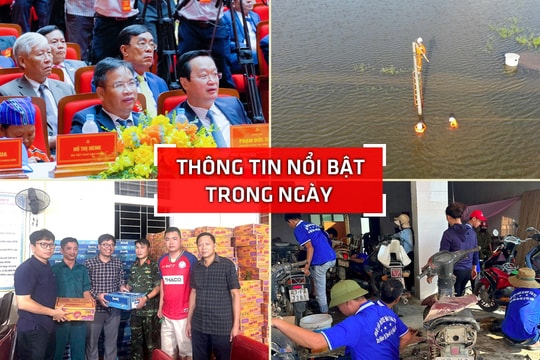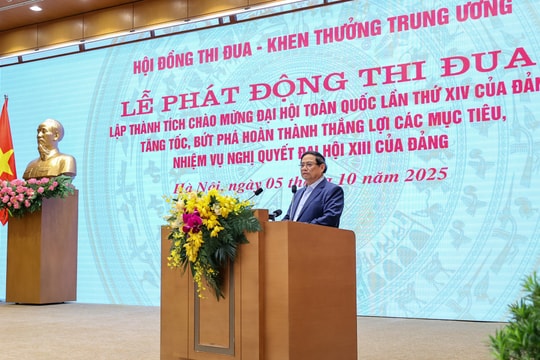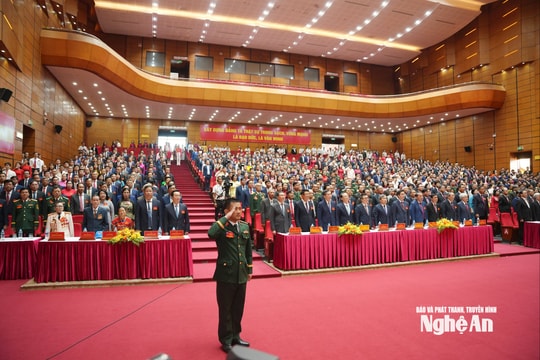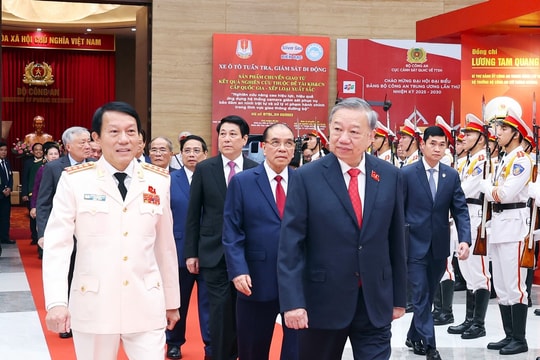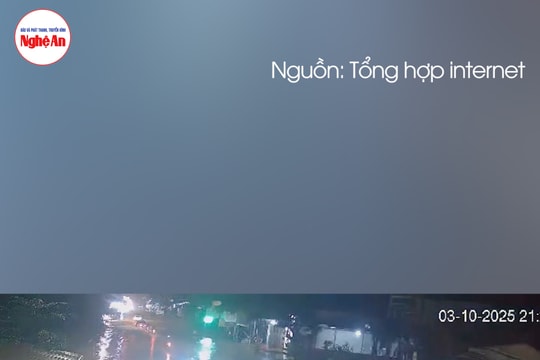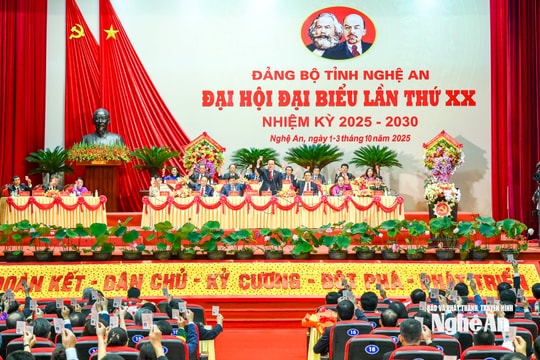Innovation in the Party's inspection and supervision work needs to be substantial and effective.
“Inspection and supervision are the leadership functions of the Party”. The Party’s leadership role will hardly be successful if inspection and supervision activities are lacking or neglected. Recent anti-corruption practices show the urgency of innovating and improving the quality of the Party’s inspection and supervision work.
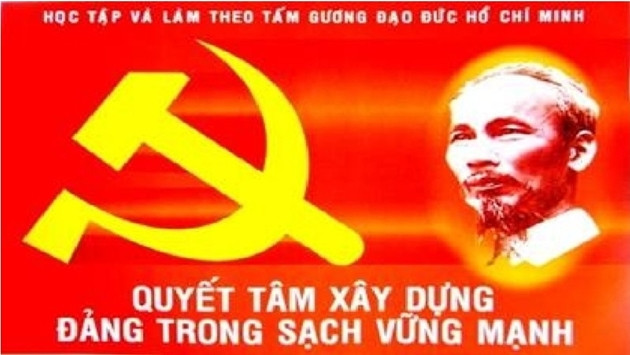 |
On June 7, the Ministry of Public Security's Investigation Police Agency issued decisions to prosecute, arrest, and search Mr. Chu Ngoc Anh, Mr. Pham Cong Tac, and Mr. Nguyen Thanh Long for violations while performing official duties. The prosecution of the highest-ranking leaders and managers at the Ministry level recalls the number of more than 131,000 Party members disciplined in the 2013-2020 period, including more than 110 high-ranking officials under the Central Government's management. In essence, all three of the above-mentioned leaders have "deviant" - specifically, they have made management decisions that are contrary to Party regulations, violated State laws, and gone against the interests and expectations of the people.
This incident also reminds us of the comments of General Secretary Nguyen Phu Trong at the conference on inspection and supervision work for the 12th Congress term (November 27, 2020). Accordingly, shortcomings and violations of party organizations and party members are still at risk of increasing, becoming more complicated and serious. On April 6, 2022, in Conclusion No. 12-KL/TW on continuing to strengthen the Party's leadership in the work of preventing and combating corruption and negativity, the Politburo pointed out the fact that serious, organized, very sophisticated and complicated violations still occur. Conclusion No. 34 of the Politburo, issued on April 18, 2022, on the "Strategy for inspection and supervision work of the Party to 2030" also pointed out that one of the factors related to the increasing number of violations is the phenomenon of collusion, cover-up and assistance of a number of cadres and party members.
The importance of continuing to innovate inspection and supervision activities
Clause 1, Article 30 of the Charter of the Communist Party of Vietnam, adopted at the 11th National Congress, affirms that "Inspection and supervision are leadership functions of the Party." This means that the Party's leadership role will hardly be successful if inspection and supervision activities are lacking or are taken lightly. However, the reality of leaders, even the entire leadership, violating the law is posing many challenges to inspection and supervision work in the Party.
At the conference summarizing the inspection and supervision work of the 12th Congress, assessing the causes of the shortcomings in the past time, General Secretary Nguyen Phu Trong pointed out the situation of "not being proactive, regular, thorough, and drastic; conducting inspection and supervision is still formal and perfunctory, leading to low effectiveness and efficiency, not enough deterrence... Inspection and supervision work in State agencies has not been given due importance and is still weak, the results are unclear". In particular, some Party committees, Party organizations, and Party committee leaders have not given due importance to inspection and supervision work. The consequence of taking inspection and supervision work lightly in the Party is that deviations have not been detected in time, causing violations to grow from small to large, from less serious to serious.
Faced with the above shortcomings, the "Party Inspection and Supervision Strategy to 2030" emphasizes the importance of continuing to innovate inspection and supervision models and activities. Accordingly, first of all, the strategy promotes the self-control awareness of each cadre and party member in complying with Party regulations and State laws. Along with that, the role of inspection and supervision within the Party organization system is especially valued. This policy is reflected through three outstanding features of the proposed tasks and solutions, including: i) Promoting the role of Party committees and the responsibility of leaders; ii) Attaching importance to institutionalizing the Party's policy on inspection and supervision; iii) Streamlining the organizational apparatus and improving the quality of cadres performing inspection and supervision.
The biggest challenge from emphasizing the role of internal control in a unified power structure is the great dependence on the quality of leaders, especially the head. If the leadership and the head are strict, impartial, and responsible, the inspection and supervision work will be performed well. On the contrary, if the head or the entire leadership is of poor quality, takes the inspection and supervision work lightly, or even gets involved in violations, the inspection and supervision activities can easily become formal, perfunctory, ineffective, or even cover up violations. Recent cases of violations by leaders show that the ineffectiveness of inspection and supervision activities in the Party is no longer just a risk, but has happened in reality. The consequence is that the leading individuals, even the entire leadership team, are disciplined.
Suggestions for model and policy adjustments
The key feature of inspection and supervision activities within the Party in our country today is to promote the vertical reaction mechanism within the Party's system of agencies and organizations in a hierarchical order. The biggest shortcoming of inspection and supervision along the vertical axis of the system is the risk of being dominated by the subjective will of the individuals leading each agency, unit, and locality. This creates risks for inspection and supervision activities, the most typical of which is the situation of perfunctory and formal implementation. More seriously, there is the situation of cover-up when the leadership and the head themselves are involved in violations.
That is to say, increasing the objectivity and independence of supervision work is the key to creating a breakthrough in the quality and effectiveness of inspection and supervision work within the Party. In other words, we need to supplement and improve the horizontal supervision mechanism, that is, the reactions coming from outside each specific agency and unit. To do this, some orientations on organizational models and policies may include:
Firstly, establish an inter-organizational and inter-local monitoring agency. Accordingly, related agencies and units or localities in a region can establish a common monitoring agency. The expansion of the organizational scale and the diversity of personnel will help reduce the influence of the head and leadership team in each agency, unit and locality, thereby increasing the objectivity of inspection and monitoring activities.
Second, cross-checking and monitoring between groups of agencies, units and localities. If this is done periodically or suddenly based on the needs and instructions of superiors, it will create constant pressure on the leadership of each agency, unit and locality. At the same time, cross-checking also helps reduce the risk of formality and perfunctoriness in checking and monitoring if it is only done internally within an agency or individual locality.
Third, improve institutional conditions for mass media, especially the press, to further promote their ability to monitor public authority as well as the conduct and lifestyle of officials and party members. The press needs to become a public forum to promptly detect abuses of power as well as deviations in viewpoints, attitudes, and behavior of officials and party members at all levels.
------
* Ho Chi Minh National Academy of Politics

